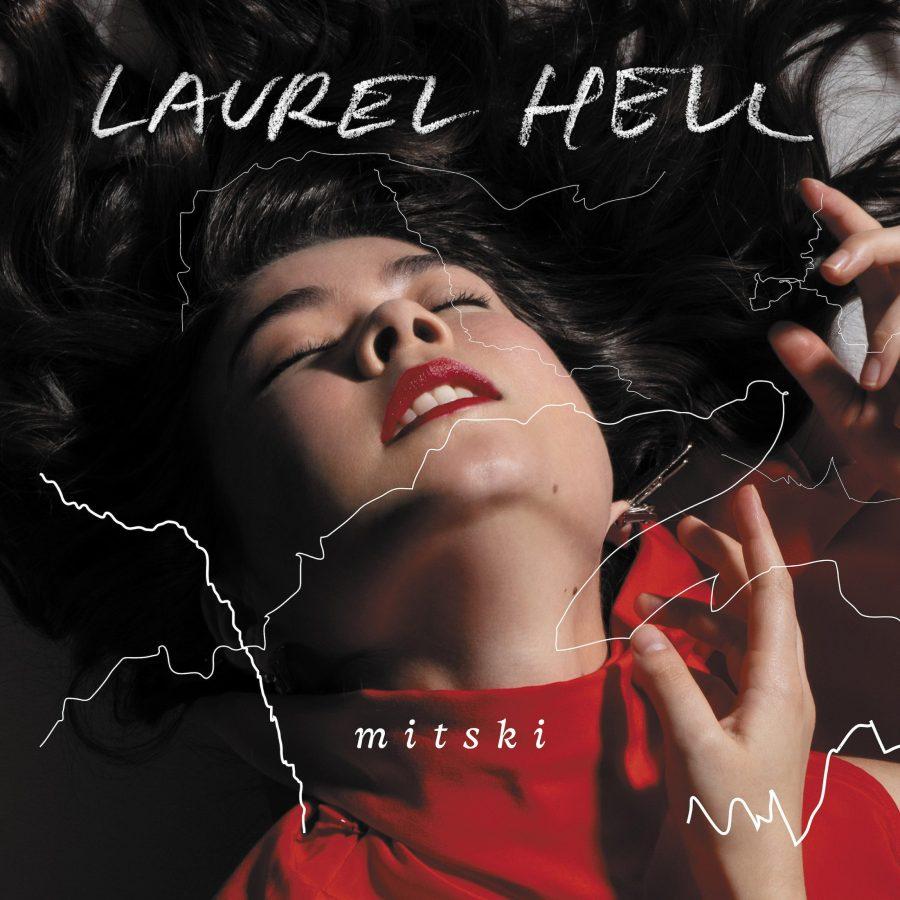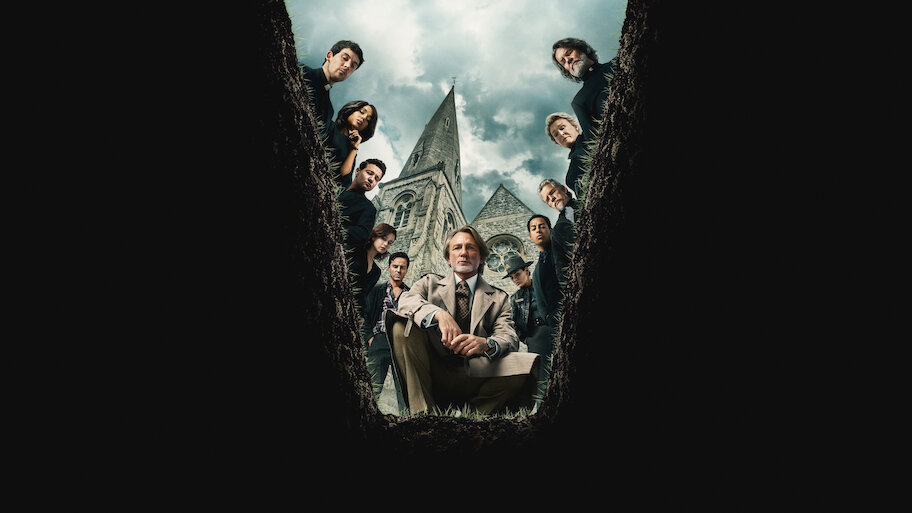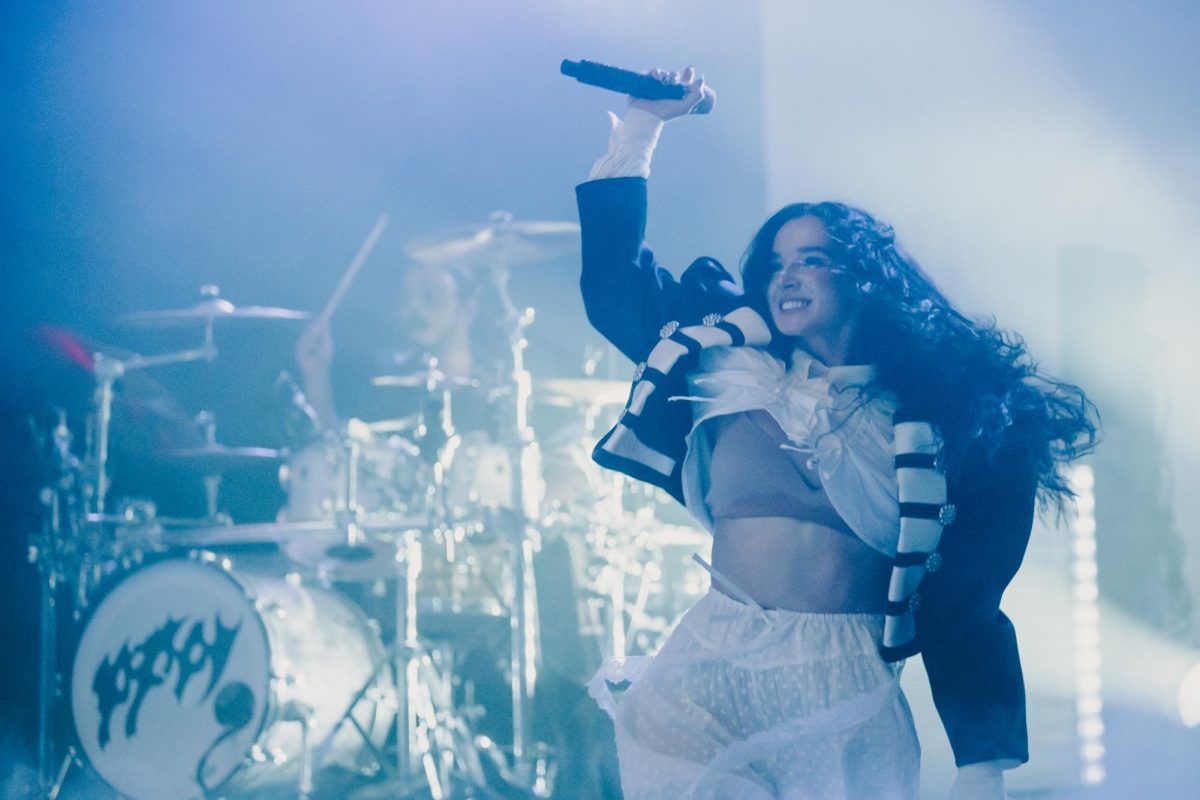Mitski returns from a two-year hiatus with a moody synth-pop album that isn’t quite sure of its sound, but makes up for it with her signature vulnerable lyricism.
“Laurel Hell” is Mitski’s sixth studio album, though it might not have existed today if she hadn’t been contractually obligated to release another album through her record label, Dead Oceans. She famously took an indefinite hiatus from music and social media in 2019, telling The Guardian in a recent interview, “It almost doesn’t matter what music I write and put out into the world. At the end of the day, I’m a woman in public, allowing myself to be consumed. I put out songs, but really what people are buying is the product that is me.”
Despite this keen awareness of her commercialization — or perhaps, because of it — Mitski puts it all on the page in “Laurel Hell.” Line after line reveals her deepest fears, worries, and regrets. She reflects on her career, most blatantly in the lead single “Working for the Knife.” On it, she croons, “I used to think I would tell stories/but nobody cared for the stories I had about/no good guys.” The song taps into the pain of trying to create when people aren’t receptive to, or are even apathetic to, one’s efforts. It also brings to the forefront the rocky relationship Mitski has with an audience who sees her as an icon for sad girls everywhere without stopping to consider her reluctance to be put on a pedestal.
With an ample mix of subjects, emotions, and sounds, “Laurel Hell” traverses the singer-songwriter’s diverse discography. Far from the grungy vibe of her debut album “Lush” and not quite as graceful as 2018’s heralded “Be The Cowboy,” “Laurel Hell” sees Mitski taking her artistry in a new direction. Retro synth intros and electronic soundscapes lend the album a nostalgic feel. In contrast, toned-down tracks with minimal instrumentation show a more restrained side of the indie pop star. Their sounds unite them to a degree, but there still appear to be two distinct moods on the album — the introspective, haunting one and the fast-paced, vibrant one. Because of this contrast, it’s difficult to declare “Laurel Hell” the cohesive body of work that its masterful predecessor “Be The Cowboy” was.
This could be due to the many changes the album underwent in the three years in which Mitski and longtime collaborator Patrick Hyland experimented with it, eventually landing on an homage to the 80s. Case in point: “The Only Heartbreaker,” which opens with a lifting beat a la “Take On Me” or “Our Lips Are Sealed” — the 2020s, sad-girl version of these songs’ peppy intros. Coming after the wistful “Heat Lightning,” “The Only Heartbreaker” starts the album’s transition from straight-up sad songs to songs that package the same feeling in a brighter, shinier box. There are dips back into melancholic territory in the album’s second half, with the moody “There’s Nothing Left For You” and “I Guess” interrupting their livelier counterparts. It’s not inherently bad to have an inconsistent sound across tracks — an album is a multi-faceted project, after all — but this inconsistency muddles the listening experience as a whole.
Although she fumbles with what she wants the album to be, Mitski retains the skillful lyricism that first catapulted her to fame. There is a depth given to every line, whether it’s describing early-morning musings on “Heat Lightning” or declaring, “Sometimes I think I am free/Until I find I’m back in line again” at the end of the experimental track “Everyone.” Mitski detaches herself from the pains of the past by acknowledging them, staring into the window of memory like it’s the still pond imagined in “I Guess.” By the end of that song, she seems to be thanking her tormentors — be they ex-lovers and former friends or less tangible foes like creative block and unconquerable feelings — for helping her realize her need to get away from them all. How else could she escape the album’s titular “Hell” and search for her slice of heaven?
“That’s Our Lamp” is a strong way to end the album. Beginning with a bouncy electronic beat, the track dives into Mitski’s delightful vocalizations. A sweeping disco pickup takes place in the middle. Drum rolls and a perpetual metal clink carry this lifted mood forward. Mitski’s vocals are strengthened by background sounds and voices woven with her own. “That’s where you loved me,” she reminds, reminisces, reflects, again and again until the song ends. For once, the sentiment is not bitter or sad, but simply stating and even celebrating the place where love once existed. It is proof: love has happened, and it will happen once more. There was a past that wasn’t all bad. There is a future that might be better.
Grade: B+
Release Date: February 4, 2022
Image courtesy of Pitchfork.
Album Review: “Laurel Hell”
Feb 13, 2022
1
0
About the Contributor

Bailey Bujnosek, Senior Staff Writer
Bailey is a fourth-year English literature and psychology double-major who watches too much reality tv. She likes listening to Mitski, Ricky Montgomery, & Fiona Apple. Her favorite movie is “Whiplash,” the “Black Swan” of jazz drumming.
More to Discover










AliceBrooks • Feb 21, 2022 at 10:15 am
Your article piqued my curiosity and addressed a lot of my questions. Please accept my gratitude and my best efforts in serving you. One professional service that I can recommend is https://www.trustmypaper.com/ , with which I’ve worked with for over two years and am very happy with. I’m a big fan of the quality of their service and the reasonable costs they provide.